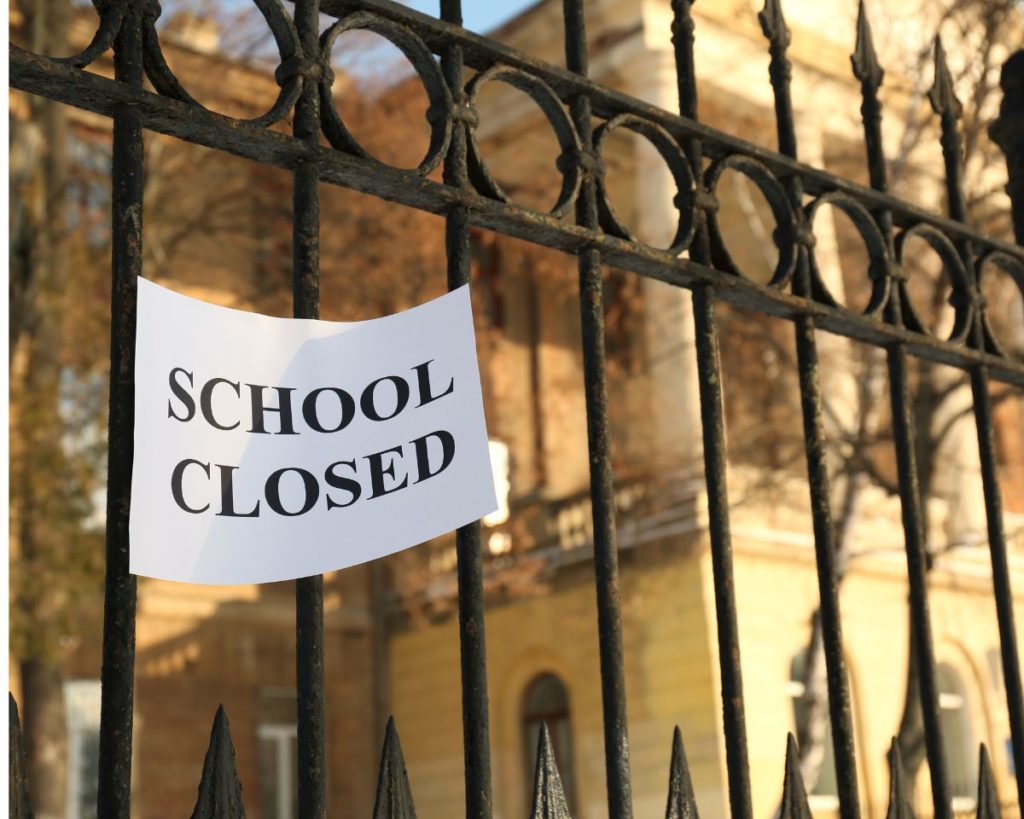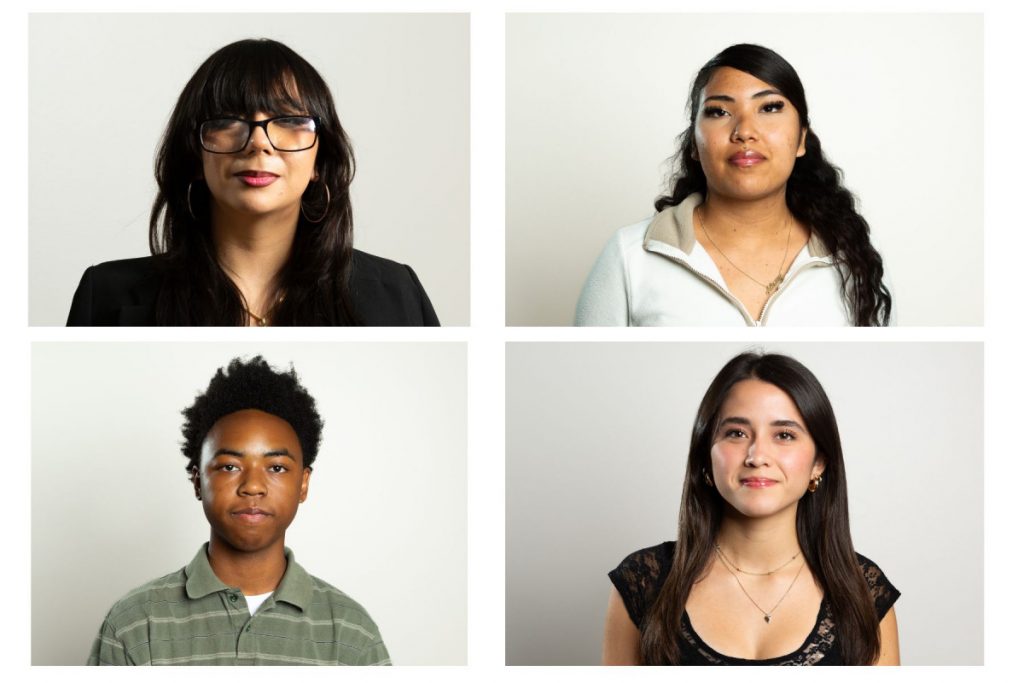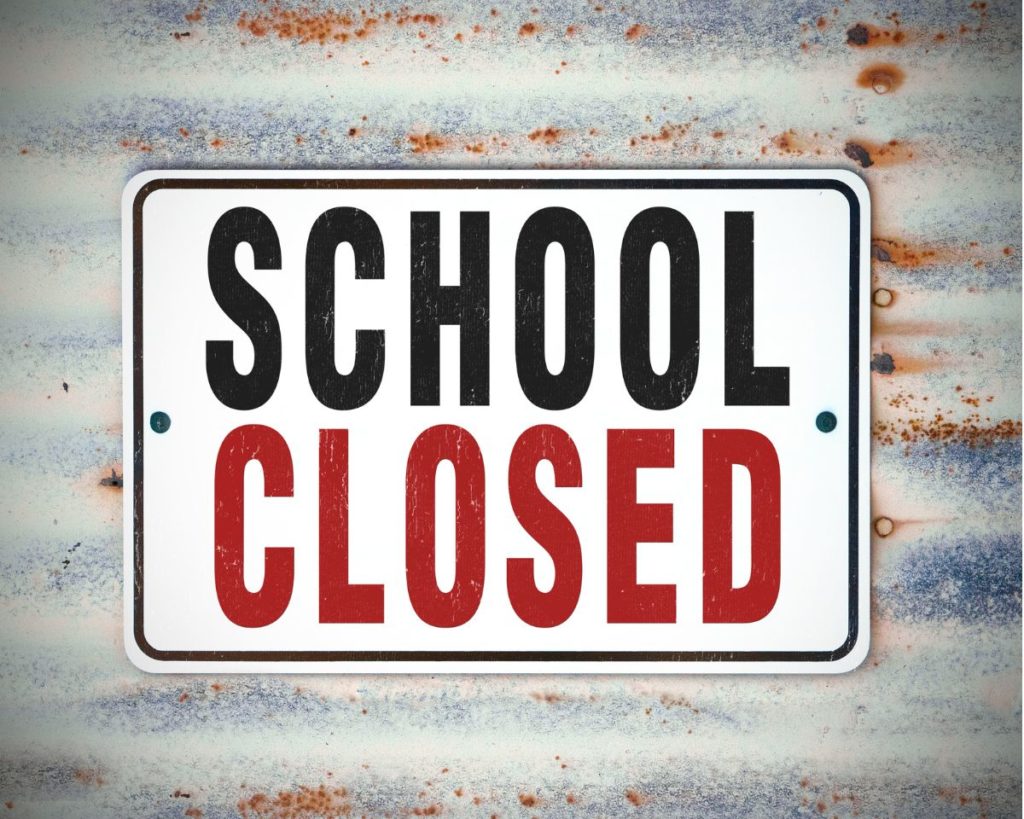I struggled writing this piece. My appreciation for nuanced decision-making was in tension with what many of us educators, leaders, etc. fall for.
In Denver, one of the leading cities for education policy, we are grappling with the likelihood of school closures. Denver is like a lot of cities across the country. Post-quarantine (that’s more accurate than “post covid”, let’s talk about it), many school districts across the country are having to explore the possibility of school closures due to decreasing enrollment, population shifts, etc.
BLAH!
We in education don’t do enough of “keeping things in context.” Yes, we are having to grapple with school closures right now. “Disruption” of a child’s education journey in this way is significant, decreases community power, and demoralizes the spirit of the community.
I don’t want to minimize the situation and that’s why this article was hard for me to write.I recognize the devastation. But, respectfully, that’s what’s been happening. For decades, education has been failing students academically, socially, and communally.
But what happens is we get so emotionally involved with the thing that’s happening right now that we forget what the actual problem is because we are out of context.
In context, school closures are only a byproduct of a system that doesn’t work.
We operate in a system that doesn’t work. We know we operate in a system that doesn’t work. But we don’t act on changing the system that we operate in that we know doesn’t work.
Here again, education in this country is choosing to turn a blind eye to the innovation that’s needed to improve the realities of children, and staring at the inevitable yet avoidable results.
When a system doesn’t work, there will always be results that are completely avoidable but inevitable because that’s what happens in broken systems.
So yes, let’s engage in this school closure process in the most responsible way for children. Folks have drafted the rules of engagement that included the community – though still leaves much to be desired.
Educators are taking it seriously. But let’s not accept that this process had to happen. Let’s address what actually caused school closures to happen. It’s what has caused almost all of the problems we have seen in education in the last 60 years.
Education has lost the trust of children.
In language, in decisions, in structure, in hope, in discourse.
In language, we use words that don’t mean anything in real life, and that leads to distrust.
Example: Did you notice I didn’t use the word “consolidation”? That’s not real. If a school that serves the community can no longer operate with its mission and vision for children in that community, it is closed.
In decisions, we limit our own ability to serve students well in ways that don’t make sense to students.
Example: Go explain to a kid the reason why different states have different school funding formulas. Explain to them that if you live in a certain neighborhood, a school gets less money to support a student.
In structure, we uphold a learning process that came about in an age that was predicated on factories that don’t exist anymore.
Example: We have brain science that tells us about the developmental stages of children. We could use this knowledge to reimagine what learning looks like. Instead, your child is overwhelmingly likely to sit at a desk, facing the front for eight hours tomorrow. That impacts trust.
In hope, children don’t have faith that education can be a vehicle towards enhancing their trajectory.
Example: Go look at attendance rates.
In discourse, we fuel unproductive conversations that dilute the decision-making process for children.
Example: 15 years ago, we swore that going to college was the right path for many students. But because five billionaires decided it was no longer cool, we allow potential college graduates to settle.
I’m not saying going to college is the only path. I’m saying that we waste time doing things like pitting going to college against doing a trade or serving this country. All are dope. Go do your thing.
Our refusal to reimagine what is possible for children has eroded their trust in the system. And school closure is an example. We have resigned ourselves to accepting closing a community institution because of the structure of our public education system.
We accept not doing better.
We accept school closure as an inevitability because we accept what comes with this system.
Could school closure be avoided? Yes, if we focus on earning the trust of students, learning from the community, and restructuring how children learn.
We can’t continue to nest needed innovation and policy in structures that don’t support its growth. When we do, we lose trust. We can’t continue to settle for what this broken system bears. When we do, we lose trust.
And we can’t continue to focus on policy and politics over the needs of children. When we do, we lose trust.
Restore trust in our schools so we can avoid being in this space again.




